~ by Kate Scanlon, OSV News for Global Sisters Report
A trio of bills to combat human trafficking sought by Catholic advocates faces an uncertain future in Congress amid a wider debate over immigration policy.At a June 6 briefing at the Capitol, representatives from the Alliance to End Human Trafficking and the National Advocacy Center of the Sisters of the Good Shepherd pointed to three bills they said would aid efforts to combat the practice: HR 5856, the Frederick Douglass Trafficking Victims Prevention and Protection Reauthorization Act of 2023; HR 1325, the Asylum Seeker Work Authorization Act of 2023; and HR 6145, Immigration Court Efficiency and Children’s Court Act of 2023.
Sister Brigid Lawlor, founder of the National Advocacy Center of the Sisters of the Good Shepherd, or NAC, and a sister of that community, said the issues of human trafficking and forced migration are closely linked.
“We have seen firsthand how traffickers prey on those forced to flee their homes by circumstances beyond their control,” she said in remarks at the briefing. “We all know what they are, could be floods, famine or gang violence, domestic violence, poverty, persecution and political corruption.”
their control,” she said in remarks at the briefing. “We all know what they are, could be floods, famine or gang violence, domestic violence, poverty, persecution and political corruption.”
Ending human trafficking, she said, “is a bipartisan issue with bipartisan solutions,” pointing to both Republican and Democratic staffers in attendance. “We need legislative action to address these particular trafficking vulnerabilities.” (Photo: OSV News/CNS file, Ruby Thomas, The Record)
The House in February approved the Frederick Douglass Trafficking Victims Prevention and Protection Reauthorization Act with a broad, bipartisan majority. The bill was sent to the Senate and referred to the Committee on Foreign Relations, which has not yet moved to advance it. That legislation also is supported by the U.S. Conference of Catholic Bishops.
The Asylum Seeker Work Authorization Act and its Senate companion, S 255, would shorten the waiting period for asylees to be granted work permits, allowing them to seek employment and reducing their vulnerability to traffickers, supporters said. The USCCB also supports that legislation. The House and Senate versions of that legislation have yet to be taken up by their relevant committees.
The bipartisan Immigration Court Efficiency and Children’s Court Act, which supporters say would reduce the immigration court backlog and strengthen due process rights for children in that process, also has yet to be taken up by the House Judiciary Committee.
But key provisions of that legislation were among the Biden administration’s December 2023 executive action on immigration, establishing separate dockets focused on the adjudication of unaccompanied children’s removal proceedings. Rep. Dan Goldman, D-N.Y., praised that move in a December statement as “welcome progress” but argued “we must build on this effort from the Executive Branch by passing my bipartisan Children’s Court Act to codify the creation of a separate Children’s Court into law.”
Congressional staffers in the House and Senate who spoke with OSV News about the bills’ prospects were unable to provide information about a timeline for advancing them, with one suggesting that any legislation dealing with immigration is getting caught up in wider debates over the border, even if the items have nothing to do with the border.

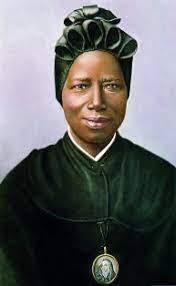 as born in the Darfur region of Sudan in 1869 and was kidnapped by slave traders and enslaved as a child. She was forced to walk barefoot over 600 miles and was sold multiple times to different owners before being sold to an Italian diplomat that took her to Italy; here, she valiantly asserted her freedom with the help of the Cannossian Sisters of Venice. Through her faith, St. Bakhita realized the promise of liberty inherent in the human spirit.
as born in the Darfur region of Sudan in 1869 and was kidnapped by slave traders and enslaved as a child. She was forced to walk barefoot over 600 miles and was sold multiple times to different owners before being sold to an Italian diplomat that took her to Italy; here, she valiantly asserted her freedom with the help of the Cannossian Sisters of Venice. Through her faith, St. Bakhita realized the promise of liberty inherent in the human spirit.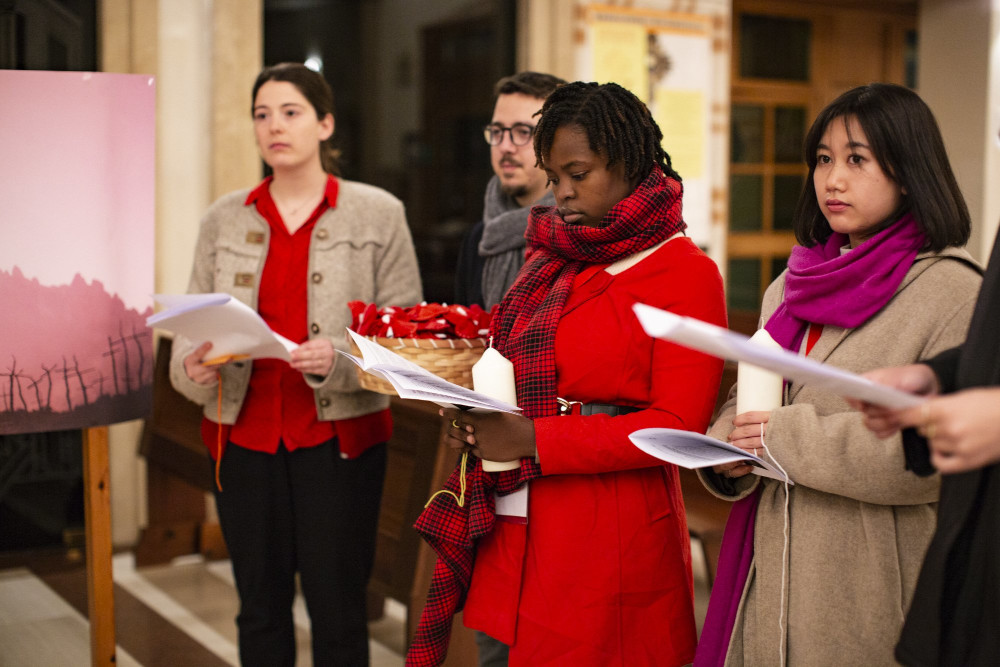

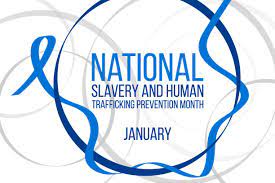
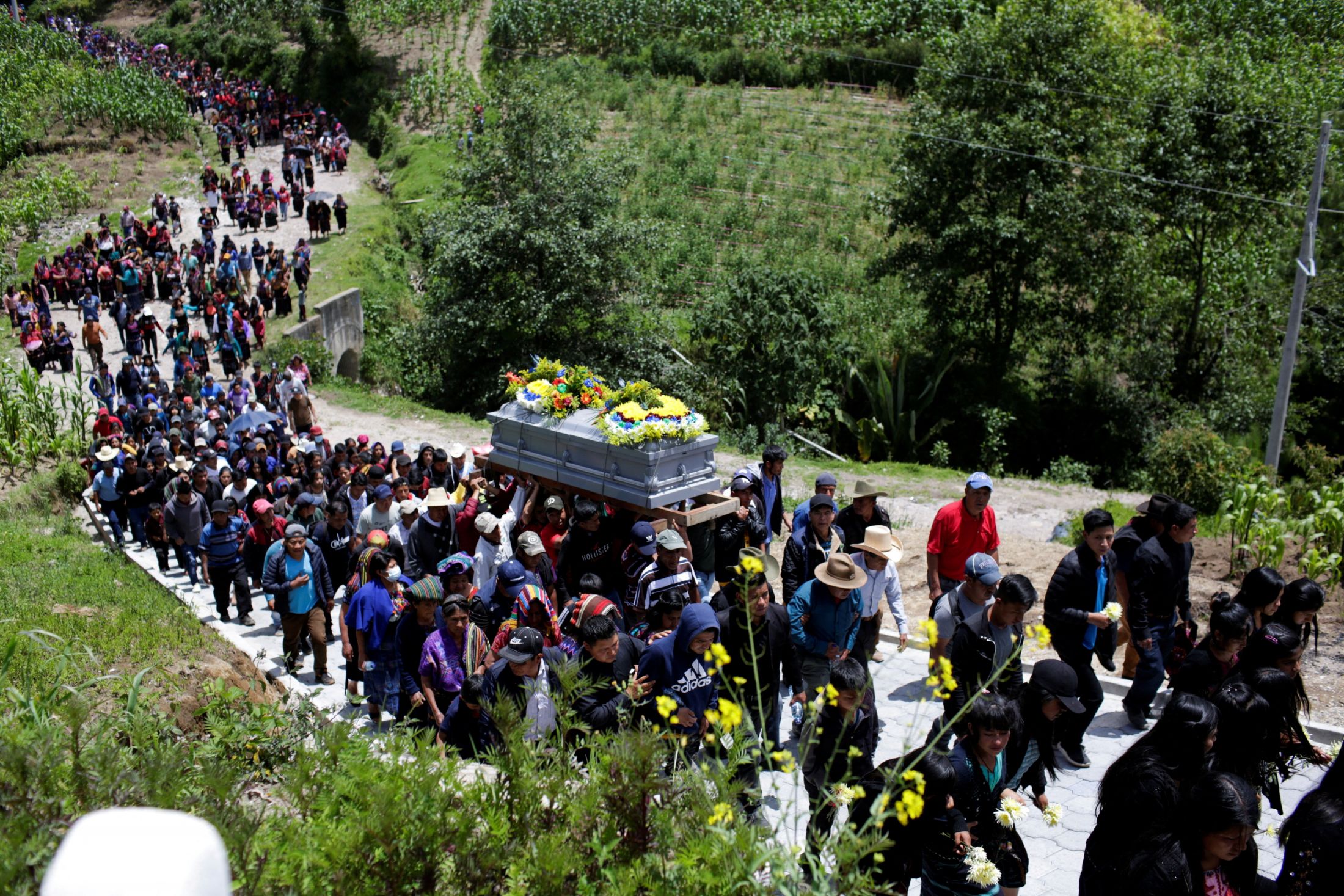 ~ by Rhina Guidos, Catholic News Service
~ by Rhina Guidos, Catholic News Service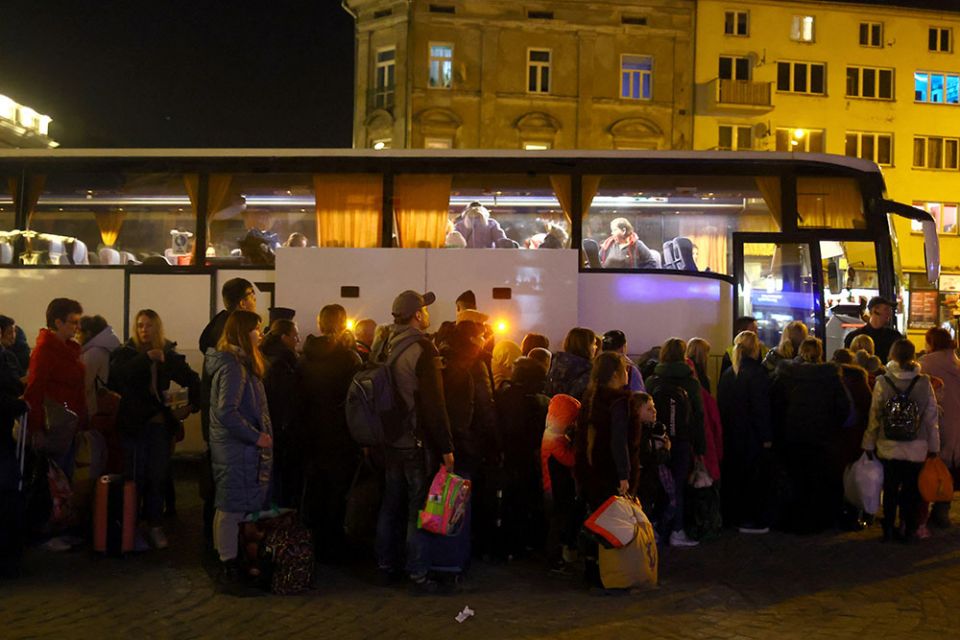 ~ Elisabeth Auvillain for Global Sisters Report (GSR)
~ Elisabeth Auvillain for Global Sisters Report (GSR)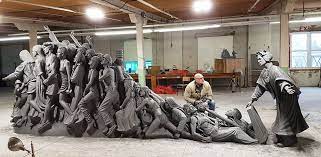 Now, Canadian artist Timothy Schmalz is hoping his new sculpture will help put a spotlight on an issue he believes too many individuals and governments would prefer to look away from. And on Sunday, February 6, the pope offered his blessing – both to the sculpture and to the religious sisters on the front lines leading the fight against human trafficking.
Now, Canadian artist Timothy Schmalz is hoping his new sculpture will help put a spotlight on an issue he believes too many individuals and governments would prefer to look away from. And on Sunday, February 6, the pope offered his blessing – both to the sculpture and to the religious sisters on the front lines leading the fight against human trafficking.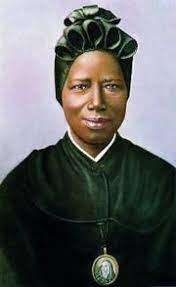 The Catholic Church celebrates the feast day of St. Josephine Bakhita on the 8th of February each year, her life was a journey from slavery to freedom and faith. The patron saint of Sudan, her life story inspires hope in the face of modern day indifference and exploitation.
The Catholic Church celebrates the feast day of St. Josephine Bakhita on the 8th of February each year, her life was a journey from slavery to freedom and faith. The patron saint of Sudan, her life story inspires hope in the face of modern day indifference and exploitation.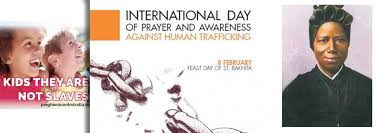 This Day of Prayer is held on February 8th each year. In addition to prayer, the day is a call to action:
This Day of Prayer is held on February 8th each year. In addition to prayer, the day is a call to action: